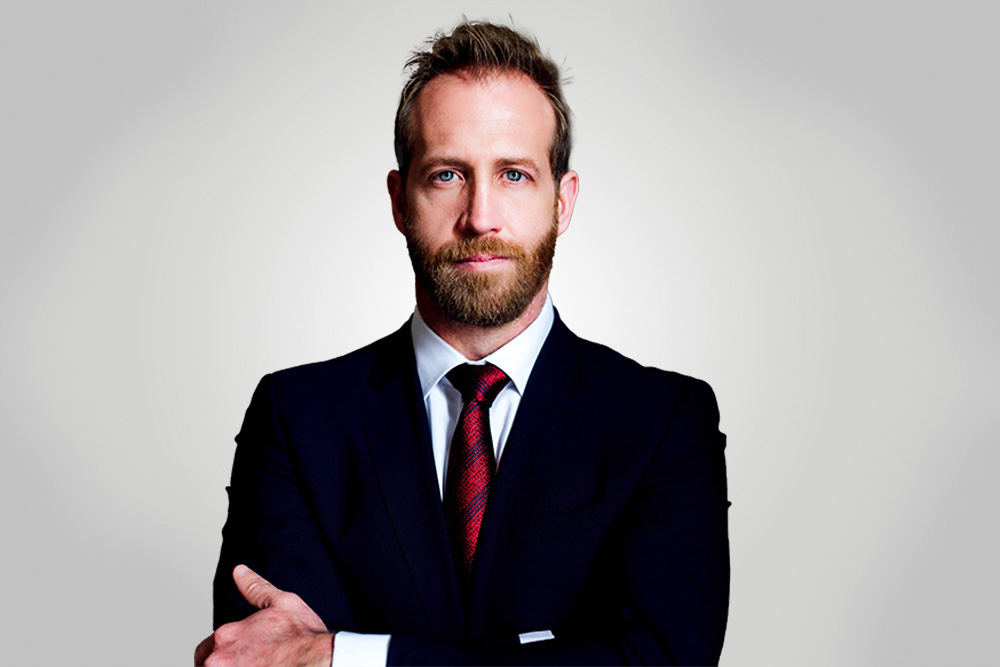In the latest installment of McChrystal Group’s Senior Advisor Interview Series, Jake Harriman discusses sharing candidly with his team, learning from failure, and sharing the necessary information to maintain engagement within a dispersed organization.
In our conversation with McChrystal Group Senior Advisor Jake Harriman, we explore his insights into the art of engaging teams, as he shares his approach to rallying individuals around a shared purpose. Drawing from his own experiences as a former Marine Corps Captain and founder of an innovative non-profit organization, Harriman offers his perspective on fostering team cohesion and inspiring others to see the greater mission that lies ahead.
Q: How are you able to stay optimistic as you tackle these tough problems that impact all of society, and more importantly, why is optimism important in these endeavors?
A: No difficult problem ever gets solved unless you have an individual leader or a group of leaders that’s willing to step forward and take a risk. I think that’s true of our current time and it’s true in history.
If you’re a glass-empty type of person, you’re probably not going to be the one that takes on some of these big audacious goals that have the potential to move the needle. Now there is certainly a place for pragmatic, lower-risk-taking individuals on a team. And on my teams, I always try to build very balanced teams.
We are taking informed risks—but not crazy risks—that we are able to deliver on what we’re putting out there. And if we fail at this endeavor or that endeavor, we’re not going to lose the entire mission. There needs to be a good balance on every team in that type of thinking.
I’ve failed a lot, and failure is an important part of that pursuit of a dream, pursuit of a bold vision. But it’s how you fail that matters. And it’s important that when you fail, you admit your failure. You don’t blame other people, you own it, and you really look internally so you can learn from it and then pivot so you don’t make those same mistakes.
Q: I want to hone in on the communication and messaging aspect of this important work. How do you effectively communicate the common purpose so it cuts through the noise and spurs people to act?
A: As a leader, you have to constantly keep the vision in front of your people. So much so that you’re sick of it. You’re going to be sick of talking about it all the time, and you’re going to think you’re on your soapbox all the time. But the team needs to hear it. It doesn’t get old to them, so you need to be the one who’s constantly delivering that message because if you don’t do it, no one else is going to.
The second part is being crystal clear about what accomplishing the mission will look like, what’s success look like? Where are we going? Being really crystal clear about what doing it right looks like, and if the team accomplishes this goal, this is exactly what it needs to look like. Then giving the team a couple of guidelines on how to achieve it. That’s what it looks like to embody the idea of letting people make mistakes. Let them take risks. Let them fail. Your people need to be able to fail or they’re never going to own things and they’re never going to learn from their mistakes.
Q: What’s your approach to understanding the individuals on your team and knowing the right balance of information to share and guidelines to implement?
A: This is part of being a servant leader. You really have to know your people to run a high-performing team. What that means is what are their strengths? What are their weaknesses? What are their hopes, their dreams? What motivates them? What’s inspires them? What are their critical points of vulnerability, and what are yours? Building a team is about understanding the strengths and weaknesses of those on the team.
A lot about high-performing teams is knowing one another and understanding the capabilities and skill sets that you have and do not have on the team so you know those critical vulnerabilities upfront. That way you’re not surprised when you meet conflict and tension later down the line.
Q: How do you strike the balance of the cadence and frequency of communicating with your team, especially these days as there are so many options?
A: Death by meetings is awful, so there is certainly such a thing as too much communication or meetings. leaders can be too eager to get information and collaborate, and in ways that are not helpful. You don’t have to have a meeting necessarily in order to collaborate. You can use a messaging platform that is integrated into your workflow. You can use a lot of other tools to be able to collaborate on something.
A lot of communicating with your team is ad hoc and out of structure, so think of reaching out to an individual and the team or manager to check-in. It is not always meetings because a lot of times what you end up doing with meetings is you are providing too much structure. You become too rigid and then your team ends up waiting for the meeting to make a decision.
Q: Talk to us about having the awareness and ability to change direction based on the environment or circumstances surrounding you, and what it looks like to communicate that change to your team effectively?
A: It starts with a foundation of trust. The leaders under you whom you’ve communicated the intent and this vision, need to have a lot of trust in you. There are times when the higher-level picture starts changing and when that happens and there’s a shift, they need to be able to trust you that you’re making this shift for a reason and that you’re moving the ship in the right direction. And establishing that trust takes time. That doesn’t happen overnight.
The second part is you need to be able to communicate information very quickly and effectively. There’s a concept called a Fusion Cell where you have all the different elements that you’re operating with on your team.
These exist to pass information to all the members and they’re passing information back to you, so the leader has a snapshot understanding of what the battle space looks like that day, and if higher things are changing, you’re able to communicate those changes out to individuals who are very good communicators. The Fusion Cell is great to be able to communicate rapidly changing information both down and taking information up so you can understand the changes in the battle space that they’re experiencing. And you can do all that in a way without being controlling or micromanaging.




